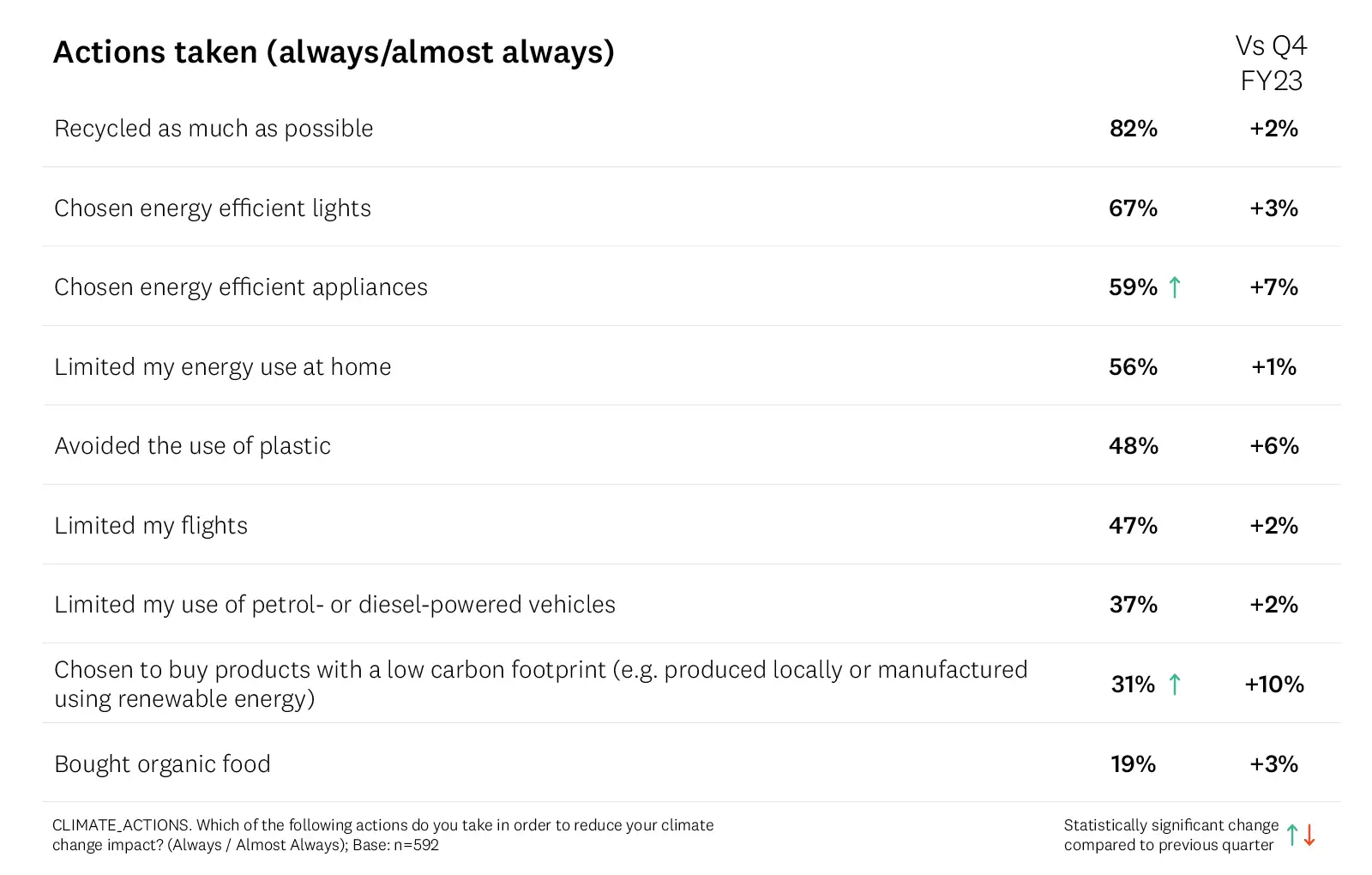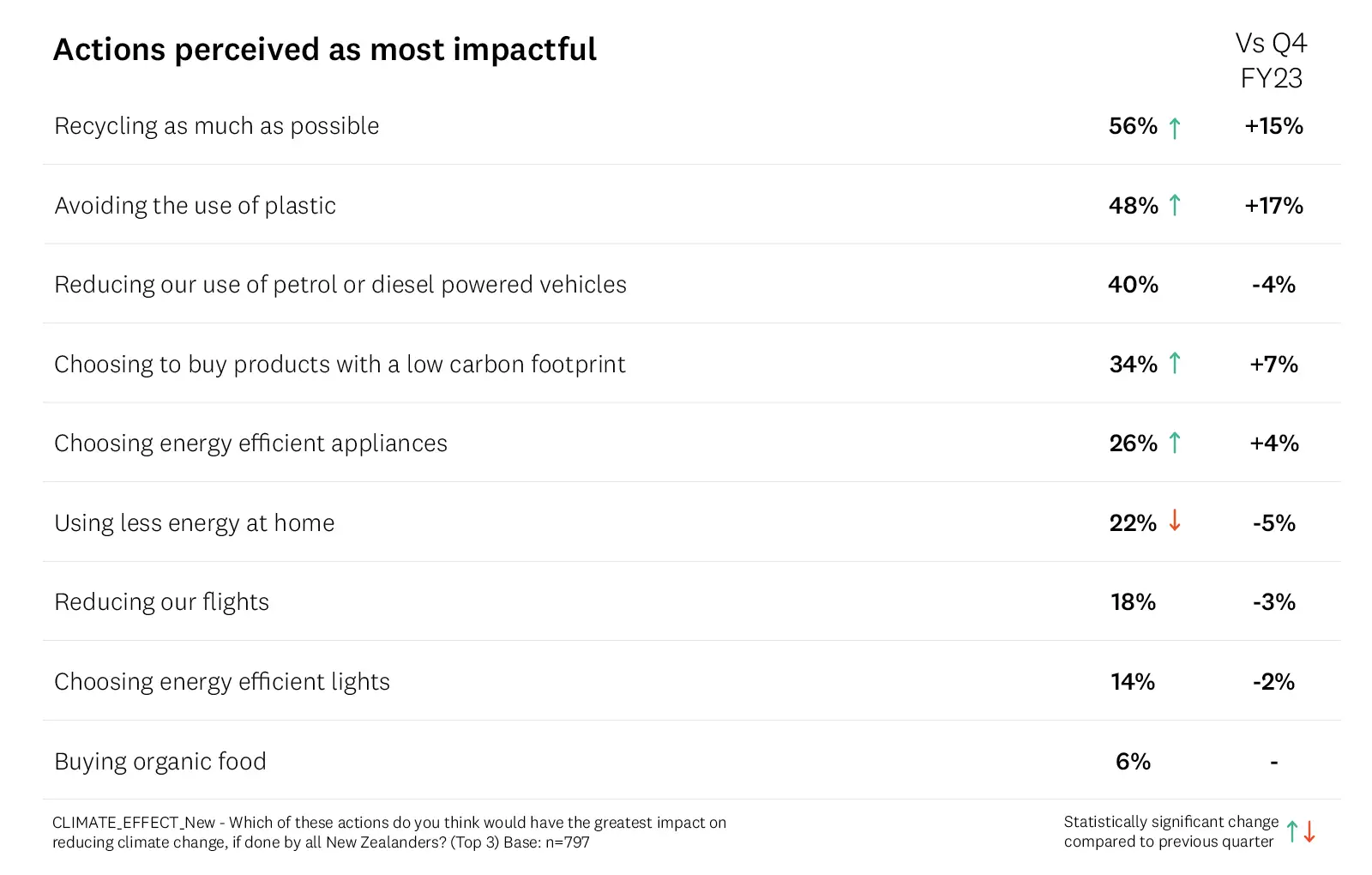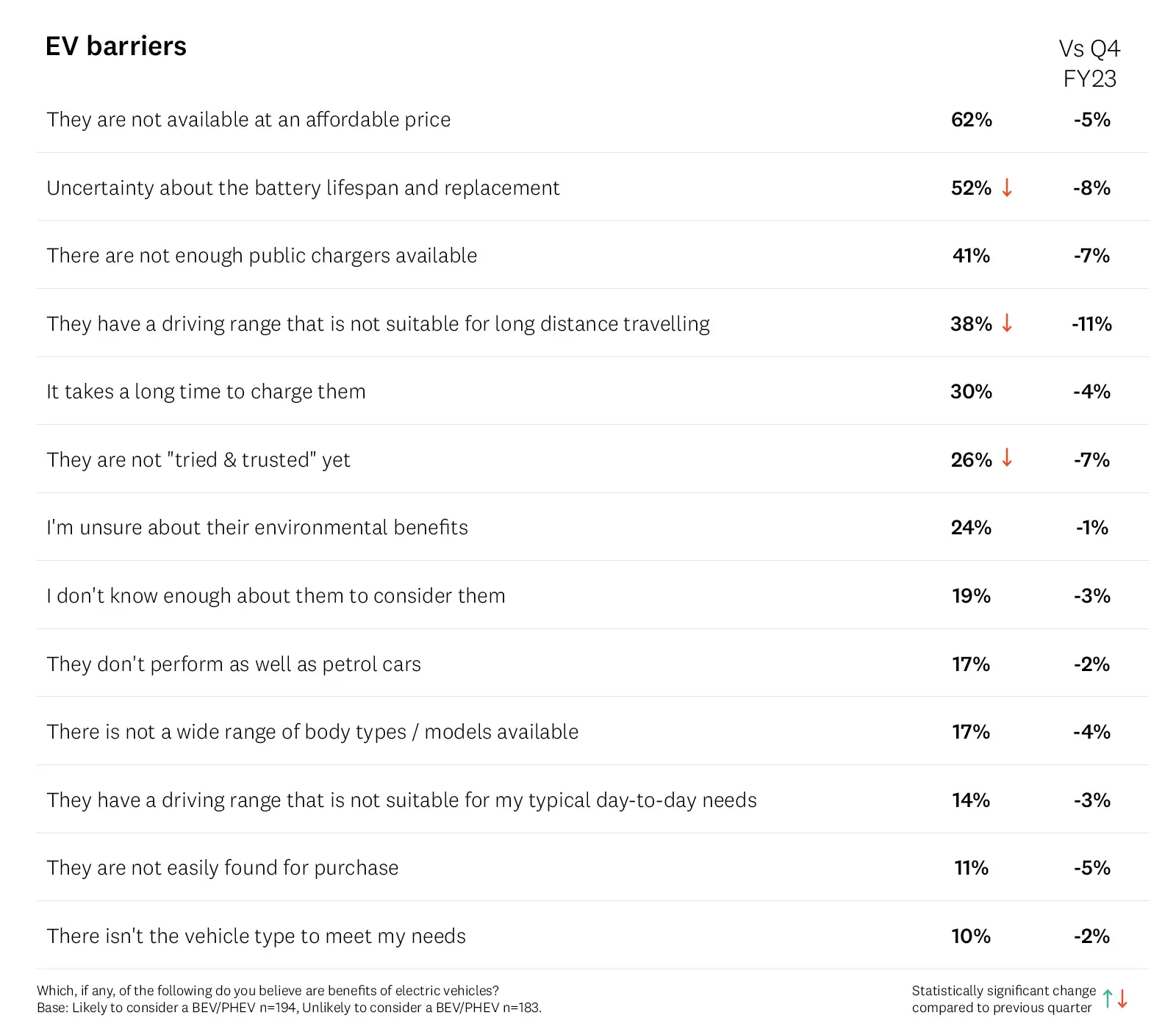Overview
Our market research programme monitors the mood of the nation relating to climate change, energy emissions and efficiency, and topics like electric vehicles. Every quarter, we survey 750 adult New Zealanders to track their beliefs, behaviours and attitudes to energy use and climate change. This survey canvassed New Zealanders from August – September 2023.
Findings
The cost of living has proven to remain top-of-mind for New Zealanders, while climate change has fallen further down the priority list. Just 64% think it’s a very important issue facing the country, its lowest point since we began monitoring in 2019.
Despite this, climate-friendly actions are holding strong, likely a reflection of consumers tightening their belts, but also potentially a reflection of wider system-level changes and some actions becoming more habitual.
Climate-friendly actions have increased
There are increases across the board for reported climate-friendly actions, with a particular jump in people choosing energy efficient appliances, and products with a lower carbon footprint.

While respondents put the most weight on recycling and reducing the use of plastic as effective climate-friendly actions, there was also an increase in people identifying energy efficient appliances and choosing products with a low carbon footprint.

The impact of energy efficient appliances
Under the Equipment Energy Efficiency (E3) programme, New Zealand and Australia regulate the energy efficiency of products in both countries. The Regulations cover products for home, commercial and industrial use.
In the year leading up to March 2023, New Zealanders purchased 4.3 million new energy-regulated products - one every 7.5 seconds.
If these products weren’t regulated for energy efficiency, New Zealanders would have paid around $39 million more in energy costs in that year. That’s the equivalent to the annual energy use of 37,000 kiwi homes.
Over the last 6 years, around 1,736,000 tonnes of CO2 have been avoided by selling more efficient models of products in New Zealand and removing the worst ones from the market through regulations.
The perceived barriers of EVs are reducing
There’s been a downward shift across all barriers to purchase electric vehicles – particularly around the uncertainty over battery life, or range of the vehicle. Consumers are becoming more familiar with EVs and, therefore, more favourable. And the long-term trend is that New Zealanders are becoming less likely to consider fossil fuelled vehicles.
- 53% of people are favourable toward EVs, up 3 points from the previous quarter.
- 52% of people report they’re confident an EV would meet their needs, up 1 point.
- 47% would consider an EV as their next vehicle, up 2 points.
- 63% would consider a petrol vehicle, down from 79% in Q2 2019.

Read the full report
EECA will publish new reports each quarter to track how attitudes and actions are changing.
Download previous reports
Read more EECA insights
-
Product sales decrease, but energy efficiency improves
EECA sales data shows that over the last year to the end of March 2023, 4.3 million regulated products have been sold - that’s one every seven and a half seconds!
- Products & appliances
- Regulations
-
Electric Vehicle Charging Survey
Insights into EV owners’ charging habits, and use of public EV charging.
- Electric vehicles
- EV charging
- Market research
-
Exploring how New Zealanders relate to energy use and climate change
A look at the impact culture, age, gender, regionality and income has on our attitudes and behaviours.
- Market research
